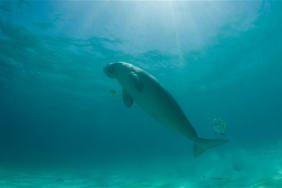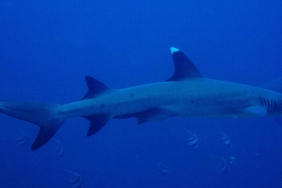IMPLEMENT ENVIRONMENTALLY FRIENDLY FISHERIES PRACTICES WITH BMP
Author: Buguh Tri Hardianto (Capture Fisheries Assistant For Reef Fish and Shrimp Commodities)
The majority of coastal communities in Indonesia have a livelihood as fishermen. One of the fish resources that is a leading commodity for fishermen to catch is reef fish, such as sunu grouper (Plectropomus leopardus), tiger grouper (Epinephelus fuscoguttatus), red snapper (Lutjanus malabaricus), and katamba (Lethrinus lentjan). Unfortunately, many fishermen in Indonesia still catch reef fish using environmentally unfriendly fishing practices. For example, by using bombs and poisons as well as catching reef fish at an unfit size. These practices make the status of reef fish resources in nature increasingly alarming. In the Decree of the Minister of Maritime Affairs and Fisheries (Kepmen KP) No. 45 of 2011 concerning the status of fisheries in 11 Fisheries Management Areas of the Republic of Indonesia (WPP-RI), it is explained that almost all Fisheries Management Areas of the Republic of Indonesia (WPP-RI) have the status of over-exploited and fully-exploited for reef fish commodities.
WWF-Indonesia works with local NGOs incorporated in JARING-Nusantara to provide assistance to reef fish fishermen to overcome these issues. One of the activities carried out is the training of Better Management Practices (BMP) Coral Fisheries to fishermen assisted by Eco Natural Foundation (Maju Bersama Fishermen Group in Kahu-kahu Village, Pasi Gusung Island, Selayar Regency, South Sulawesi), KARSA Institute Foundation (Pulau Tiga Fishermen Group in Sausu Peore Village, Parigi Moutong Regency, Central Sulawesi), and LEMSA Foundation (United Fishermen Group on Kodingareng Lompo Island, Makassar, South Sulawesi) conducted on February 10-27, 2016. The fishermen in the three groups have the same situation, namely declining catches and they want to improve the situation. The need for fuel for boat operations is increasing due to the farther fishing locations, while the yields are often not enough to cover operational costs. This decline in reef fish stocks has a real impact on fishers' economies. This activity aims to provide an understanding of the importance of conducting environmentally friendly reef fishing practices and maintaining good quality catches. Of course, so that fish stocks recover and the selling value increases so that the sustainability of fishermen's livelihoods can be maintained.
To find out the gap between the reef fishing practices of the assisted fishermen and the content of the material in the Reef Fish BMP, interviews with fishermen were conducted. From the results of the initial fulfillment interview, it was found that 40.37% of the fishing practices carried out by the assisted fishermen were in accordance with the guidelines in the Reef Fish BMP. It was also found that there are several points that must still be fulfilled by fishermen in order to comply with the Reef Fish BMP, namely the licensing section of fishing activities, equipment carried during fishing operations, and handling reef fish catches. These three points will be the focus of Eco natural Foundation, KARSA Instutute, and LEMSA to provide assistance to the fishermen. In addition, fishermen's understanding of the material on environmentally friendly reef fish fishing practices and maintaining the quality of catches also increased after this Coral Fish BMP training. This can be seen from the 9.1% point increase in scores from the results of the pre-test and post-test conducted, from an average of 60.4 to 69.05.
Building Fishermen's Awareness of Environmentally Friendly Fisheries Practices
Reflecting on their experience, fishermen who used to practice destructive fishing with bombs and poisons are now starting to switch to more environmentally friendly practices. Those who used to catch reef fish juveniles, after the Reef Fish BMP training agreed to use bigger fishing rods so that only fish that are fit to be caught are caught. Not only that, the fishermen in each assisted area are also committed to strengthening fishermen groups to be more solid while protecting the marine environment. For example, the Pulau Tiga Fishermen Group from Sausu Peore Village independently monitors the Marine Protected Area (DPL). In addition, to provide data to assess the stock of coral fisheries later, the fishermen were trained to always record their catches. These awarenesses continue to be built during the mentoring and socialization activities of Reef Fish BMPs.
In addition to emphasizing the importance of maintaining the marine ecosystem, the fishermen were also equipped with knowledge to maintain the quality of the catch by conducting good post-catch handling. This is intended as an effort to increase the selling value of fishermen's catch so that they focus on the quality of the catch not just the quantity. With good catch quality, fishermen can also market their fish to more open and healthy markets, one of which is to Fish 'n Blues, the first environmentally friendly seafood provider and distributor in Indonesia who is also a member of Seafood Savers.





